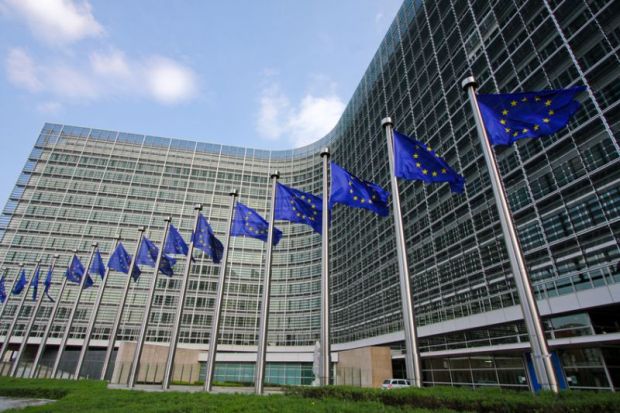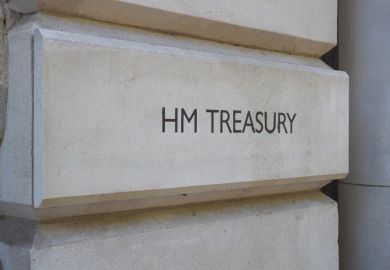The European Commission will “start immediately” on ratifying the UK’s association to Horizon Europe once the agreement on Northern Ireland trade rules is finalised, its president Ursula von der Leyen has said.
Unveiling a new European-UK agreement at a joint press conference with prime minister Rishi Sunak, Ms von der Leyen said the expected deal would allow talks to resume about when Britain could join Europe’s flagship €80 billion (£70.6 billion) research scheme.
The commission had blocked the UK from finalising a deal on Horizon Europe association until agreement was reached on the wider dispute over Northern Ireland – seen as Brussels using the research programme as a political bargaining chip – which has been resolved three years after the initial Brexit deal, and just over two years after Horizon Europe membership was agreed.
“This Windsor framework is good news for scientists and researchers – in the European Union and in the UK – because the moment we have finished this agreement…the moment it is implemented, I am happy to start immediately, right now, the work of association agreement, which is the precondition for joining Horizon Europe,” explained Ms von der Leyen on 27 February.
“So good news for all those who are working in research and science,” she added.
The seven-year Horizon Europe programme started in February 2021, so the UK would be joining part way through – a complicating factor when it comes to agreeing the UK’s financial contributions, which will come to more than £1 billion a year. The Westminster government has been covering the costs of participation for UK researchers via a guarantee scheme.
Sir Adrian Smith, president of the Royal Society, said the UK needed to “swiftly secure access to the EU’s international research programmes” now that the impasse over Northern Ireland had been resolved.
“It is more than two years since the government agreed association to Horizon Europe, Euratom and Copernicus – two years of delays that have damaged science across Europe. These schemes support outstanding international collaboration, and the sooner we join them, the better for everyone,” said Sir Adrian, who also welcomed unconfirmed reports that, following the recent return to the Treasury of a £1.6 billion underspend that was intended for association to Horizon Europe, “the money will be spent in subsequent financial years”.
The news over Horizon Europe was also welcomed by Dame Anne Johnson, president of the UK’s Academy of Medical Sciences, who said her organisation, together with the wider scientific community, “has repeatedly highlighted that full UK participation in Horizon Europe is the best possible outcome for research and for the health of people everywhere”.
“Achieving this would the single biggest step we can take right now to deliver on the UK’s ambitions to be a world leader in science,” said Dame Anne.
Meanwhile, Sir John Hardy, chair of the molecular biology of neurological disease at UCL, said it would be “great news for UK science” if the country could join Horizon Europe, although its years in the wilderness will have already caused some damage.
“Dropping out of these collaborative schemes did harm to our standing, and some of that harm will be irreversible: grants will have been written without us, and we will now have to try and rejoin these networks, some of which we once led, as supplicants,” said Professor Hardy.
Register to continue
Why register?
- Registration is free and only takes a moment
- Once registered, you can read 3 articles a month
- Sign up for our newsletter
Subscribe
Or subscribe for unlimited access to:
- Unlimited access to news, views, insights & reviews
- Digital editions
- Digital access to THE’s university and college rankings analysis
Already registered or a current subscriber?








